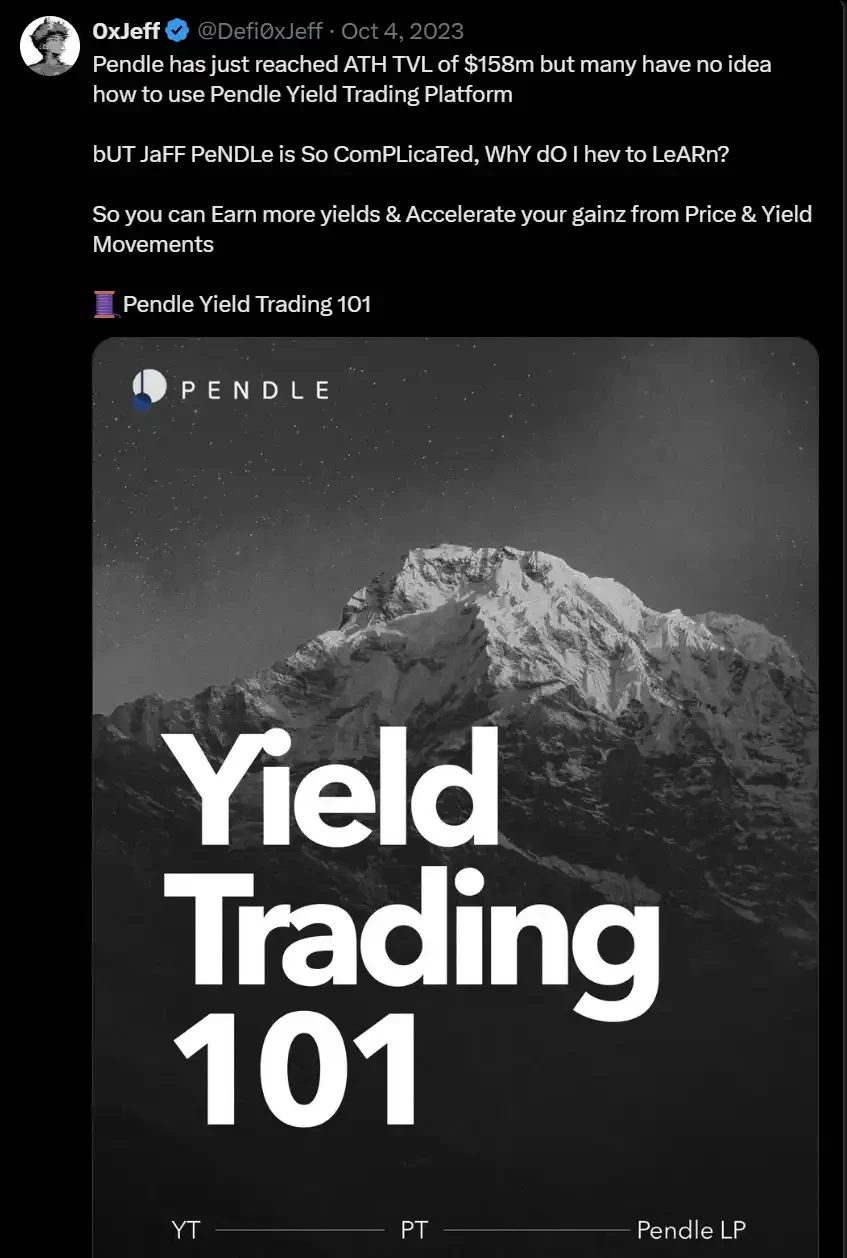AI Agent token issuance craze: Seize the future trend of tokenization
Random Sunday Thoughts on What Comes After Agent Jetonization?
Original author: Defi 0x Jeff, Crypto Kol
Traduction originale : zhouzhou, BlockBeats
Note de l'éditeur: This article discusses the trend of tokenization and its future development, covering the progress of tokenization in the fields of assets, art, income, AI agents, etc. It introduces how pioneers of various tokenizations are driving industry change, and explores possible future tokenization trends, including the tokenization of data, attention, and AI applications. Tokenization is not only a technological innovation, but also a force that changes how people interact and creates new opportunities.
Voici le contenu original (pour une lecture et une compréhension plus faciles, le contenu original a été réorganisé) :
The concept of tokenization has always fascinated me. It seems simple, but every time something new is tokenized, everyones attention quickly turns to it.
Here’s a summary of some of the tokenization trends we’ve seen so far, how they’ve developed, and what might happen in the future:
Tokenization of assets
The initial tokenization trend.
Bitcoin created the first decentralized, secure, and transparent ledger system, paving the way for the digital representation of assets. Then, in 2015, the advent of Ethereum introduced smart contracts, making assets programmable—whether it’s real estate, art, or DeFi.
Today, Ethereum’s market value has reached $470 billion, which shows the impact that tokenization has on assets.
Tokenization of Art (NFTs)
The rise of NFTs has introduced tokenization to the art world.
In 2017, projects like CryptoPunks and CryptoKitties brought NFTs into the public eye. By 2021, NFTs had a trading volume of $13 billion, becoming the preferred way to represent digital art and collectibles. Many collectibles like CryptoPunks, BAYC, Art Blocks, etc. were priced at millions of dollars at their peak in 2021.
Tokenisation des revenus
Another major change is the tokenization of earnings.
Pendle fi pioneered the concept of tokenized future returns in 2021. It created a market that allows trading of fixed and variable returns, adding flexibility and liquidity to DeFi. Pendle began to grow rapidly in 2023, especially in the LST (liquid staking token) and points market in early 2024.
Today, $PENDLE has a market value of $1.6 billion.

Tokenization of AI Agents
Now, we are seeing the tokenization of AI agents.
Virtuals io has launched a platform where users can create AI agents and tokenize them, effectively providing start-up funding for their development costs.
The concept of AI agents began in October 2024, and Virtuals created a market for agent ownership. Today, the market value of $VIRTUAL has reached $2.5 billion.

What is the next big trend in tokenization?
Across these sectors — assets, art, income, AI agents — we can see a clear pattern: pioneers in each space typically experience rapid adoption and significant price volatility.
Here are some ideas Im eyeing:
Tokenization of data
withvana is exploring DataDAOs and Data Liquidity Pools (DLPs).
Users can contribute data to these pools, maintain data ownership, and receive rewards based on the quality of their contributions.
Essentially, it transforms data into a liquid, tradable asset.
$VANA goes live on December 16th, and the concept of tokenized data ownership could be huge.
Tokenization of Attention
kaitoai is working on the tokenization of attention in Web3, and they have demonstrated the ability to generate and facilitate more attention through their platform, the Mindshare dashboard, and most recently, the Yap-to-Earn feature.
Their Yapper Leaderboard incentivizes thought leaders to speak out more, earn Yap Points, and ultimately receive airdropped $KAITO tokens.
Basically, Yap = Attention = $KAITO. This is an interesting way to show how Web3 is redéfining user engagement.
Tokenization of AI Applications
This seems like a natural extension of the AI agent trend.
With the rise of tools like Replit and an ecosystem of agents, we are getting closer to personalized software creation.
Tokenized AI applications allow users to initiate development and own a share of the revenue generated by the application.
Competitors in this space include alchemistAIapp and myshell ai, both of which enable creators to build revenue-generating AI applications, providing practical and scalable use cases.
Myshell goes a step further by allowing investors to invest directly in these apps and receive a share of the revenue generated by the apps in the future. This model not only supports development, but also aligns the interests of creators and investors.
Dernières pensées
Tokenization trends always bring new waves of innovation and adoption, but what’s exciting about them isn’t just the technologies themselves — it’s how they bring people together and shift the focus to new opportunities.
This article is sourced from the internet: AI Agent token issuance craze: Seize the future trend of tokenization
Related: Matrixport Marché Observation: US stocks give up some gains, BTC breaks through ATH, what is the future trend of cryptoc
In the past week, BTC began to accelerate its rise, breaking through ATHs of $9,3000 and $94,000. Although the current BTC price has fallen slightly, it is still fluctuating around $93,400, and the highest increase of BTC in 24 hours is over 4.5% (the above data comes from Binance spot, November 20, 17:00). Currently, BTC has become the only investment category in the Trump economy that has not yet given back its gains. Due to extreme long positions and market concerns about continued rising yields, US stocks have given back some of their recent gains. Although geopolitics has heated up recently, under the leadership of Nvidias upcoming earnings report and technology stocks, US stocks closed again on November 19 with relatively flat data, with the Nasdaq and SP 500 rising…







